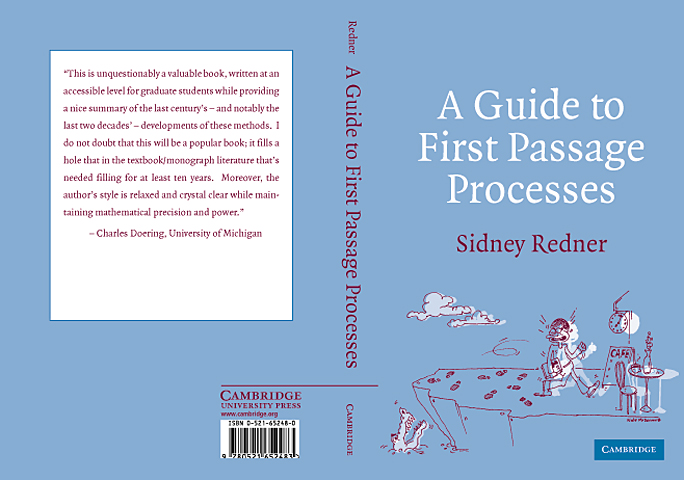Short list of exercises (updated Jan. 25 2003).
Some book reviews:
by Alan Bray (Journal of Statistical Physics, February 2002).
by Robert Dorfman (American Journal of Physics, November 2002).
by Paolo Laureti (Econophysics Forum, November 2002).
View the table of contents (ps format file).

|
First-passage properties underlie a wide range of stochastic processes,
such as diffusion-limited growth, neuron firing, and the triggering of stock
options. This book provide a unified presentation of first-passage
processes, which highlights its interrelations with electrostatics and the
resulting powerful consequences. The goal of this book is to help those with
modest background learn essential results quickly.
|
Sidney Redner <redner@bu.edu> Last modified: Mon Nov 8 22:09:29 EST 2004